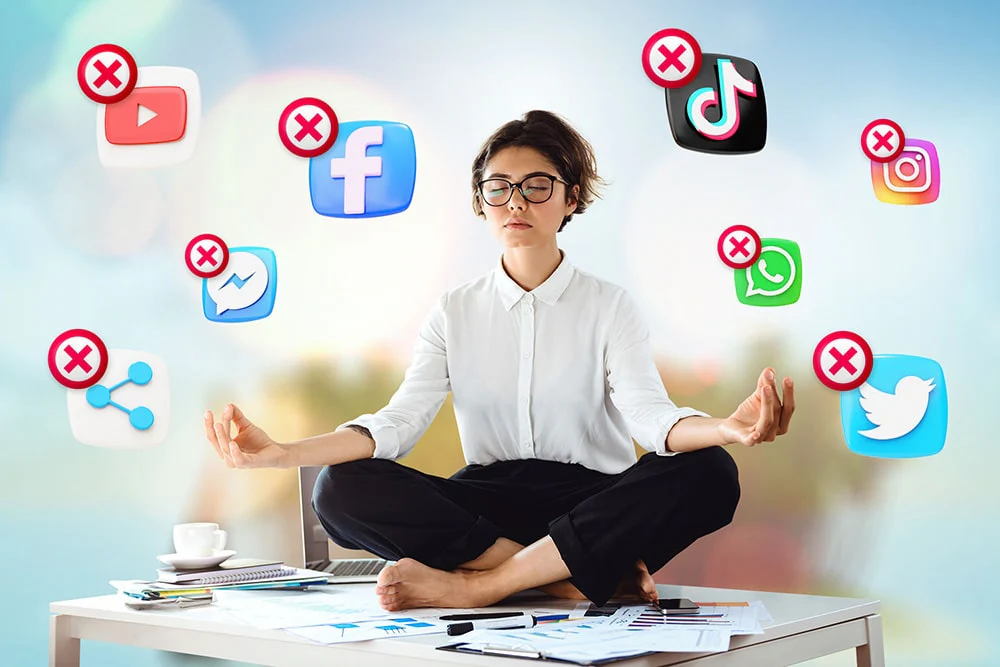In the palm of your hand lies a device of unparalleled power and convenience – and potentially, your silent assassin. Your smartphone, that indispensable companion of modern life, might just be slowly draining your life force, one notification at a time. As we hurtle deeper into the digital age, it’s time to confront an uncomfortable truth: our addiction to these pocket-sized supercomputers is exacting a hefty toll on our physical health, mental wellbeing, and the very fabric of our social existence.
The Invisible Threat
Picture this: You wake up, bleary-eyed, and the first thing you do is reach for your phone. Before your feet even touch the floor, you’re scrolling through emails, social media updates, and news headlines. Sound familiar? You’re not alone. The average American checks their phone 96 times a day – that’s once every 10 minutes.
But here’s the kicker: each of these seemingly innocuous checks is a small withdrawal from your health bank account. The blue light emitted by your screen is disrupting your circadian rhythm, leading to poor sleep quality and increased risk of depression. Your constant hunching over the device is giving you “tech neck,” a modern ailment that can lead to chronic pain and spinal issues. And let’s not even get started on the anxiety-inducing effects of constant connectivity and social media comparison.
The Dopamine Dilemma
Our smartphones have become the ultimate dopamine dispensers. Each notification, like, or message triggers a tiny hit of this feel-good neurotransmitter, creating a feedback loop that keeps us coming back for more. It’s not hyperbole to compare this to drug addiction – the neurological mechanisms are strikingly similar.
But unlike the immediate and obvious consequences of substance abuse, the effects of smartphone addiction creep up on us slowly. We don’t see the gradual erosion of our attention spans, the subtle decay of our real-world social skills, or the insidious increase in our stress levels. By the time we notice, we’re already deep in the throes of digital dependence.
The Social Paradox
Perhaps the greatest irony of our smartphone obsession is how it impacts our social lives. These devices, ostensibly designed to connect us, are actually driving us apart. How many times have you seen a group of friends at a restaurant, all staring at their phones instead of engaging with each other? We’re becoming a society of digital zombies, physically present but mentally elsewhere.
This constant distraction is rewiring our brains, making it harder for us to engage in deep, meaningful conversations or to simply be present in the moment. We’re losing the art of boredom – that fertile ground for creativity and self-reflection. Instead, we fill every moment of downtime with mindless scrolling, robbing ourselves of the mental space needed for personal growth and genuine human connection.
The Health Implications
The physical health impacts of excessive smartphone use are equally alarming. Apart from the aforementioned sleep disruption and neck strain, prolonged screen time is associated with an increased risk of obesity, cardiovascular disease, and even certain types of cancer. The sedentary lifestyle promoted by our digital addictions is a ticking time bomb for public health.
Moreover, the constant barrage of information and stimuli is overwhelming our cognitive capacities. Attention spans are shrinking, anxiety and depression rates are soaring, and our ability to focus on complex tasks is diminishing. We’re creating a generation of scattered, stressed-out individuals ill-equipped to handle the challenges of an increasingly complex world.
The Way Forward: Digital Detox
So, what’s the solution? Cold turkey might seem appealing, but it’s neither practical nor sustainable in our interconnected world. Instead, we need to cultivate a healthier relationship with our devices through mindful usage and regular digital detoxes.
Start small: designate phone-free zones in your home, like the dinner table or bedroom. Set specific times for checking emails and social media, rather than responding to every ping. Rediscover the joy of single-tasking – give your full attention to one activity at a time, whether it’s reading a book, having a conversation, or simply enjoying a meal.
Consider a more extended digital detox periodically. A weekend, a week, or even longer without your smartphone can be a transformative experience. It allows your brain to reset, your stress levels to decrease, and your real-world connections to flourish.
The Choice Is Yours
The smartphone revolution has brought unprecedented convenience and connectivity to our lives. But like any powerful tool, it requires responsible use. The choice is clear: take control of your digital habits now, or risk becoming a casualty of the digital age.
Your smartphone doesn’t have to be your slow-acting poison. With mindful usage and regular digital detoxes, it can remain a useful tool rather than a life-draining addiction. The power to change is literally in your hands – it’s time to swipe left on digital dependence and right on real-life experiences.
Remember, life is what happens when you’re not looking at your screen. Don’t let your smartphone slowly kill the vibrant, connected, and healthy individual you could be. Embrace the digital detox – your mind, body, and soul will thank you.





